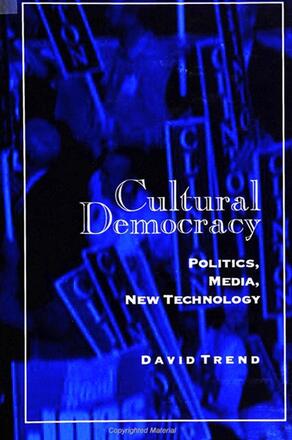
Cultural Democracy
Politics, Media, New Technology
Alternative formats available from:
Follows the work of a range of public intellectuals like Aronowitz, Giroux, hooks, Mouffe, and West, and argues for a 'radical democracy' capable of subverting traditional divisions of 'left' and'right. '
Description
Following the work of a range of public intellectuals like Stanley Aronowitz, Henry Giroux, bell hooks, Chantal Mouffe, and Cornel West, Cultural Democracy argues for a "radical democracy" capable of subverting traditional divisions of "left" and "right". In so doing, Trend suggests that solutions to contemporary cultural and political problems are not so far away as one might think. Their roots lie in the very democratic principles upon which the U. S.was founded, although many such principles need to be brought up to date and radicalized.
David Trend is Dean of Creative Arts, De Anza College. He is the executive editor of Socialist Review and coordinator of the MA program in Interdisciplinary Arts at San Francisco State University. He is the author of The Crisis of Meaning in Culture and Education, and editor of the forthcoming Radical Democracy: Identity, Citizenship, and the State.
Reviews
"Cultural Democracy wonderfully redefines the relationship between cultural work and the crisis over democratic meaning within education, entertainment, art, and the media. Trend's proposal to update democratic principles so that we can engage in a meaningful cultural and political dialogue helps illuminate and reconstruct diverse forms of pedagogical practice. Currently, there are very few books that address the relationships between cultural work, the arts, and the crisis of democratic discourse while simultaneously offering a theoretical discourse for establishing the basis for such a project. Cultural Democracy fills that gap. " — Chris Scoates, Gallery Director, Atlanta College of Art Gallery
"Trend's knowledge base is very extensive. He does an excellent job of relating phenomenon from diverse political and cultural arenas. He analyzes the underlying causes of the current climate of political cynicism and cultural bankruptcy and suggests possibilities for change that transcend the respective impasses of both left-wing and right-wing politics. " — Christine Tamblyn, University of California, Irvine